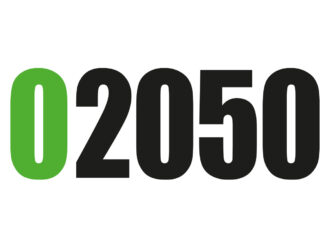2013: Armageddon?
Nouriel Roubini, dubbed “Dr Doom” after correctly predicting the global financial crisis, has stuck to his forecast of a “perfect storm” of events in 2013, which would lead the global economy into a protracted recession over several years. The storm would arise where the eurozone and other officials are unable to manage the exit of Greece and other peripheral countries such as Portugal and Spain, while Chinese officials are unable to provide sufficient bailouts to banks to avoid a collapse in output and economic tensions.
Should these events coincide, along with a recession in the US, a protracted recession would follow, the risks of which are raised by policy mistakes and the unwillingness of developed market authorities to use policy tools, which further delays rebalancing, leading to a sharp slowdown of global growth.
Despite the short-term ‘sugar-rush’ created by QE, as Richardson calls it, the fundamental picture is already reverting back to where it was earlier this year. Peter O’Flanagan, head of FX dealing at Clear Currency says: “Doubt over the eurozone rescue measures, concerns over the US fiscal cliff which is looming, and growing belief that current stimulus measures have peaked are all justifiable reasons for the sell-off in risk, but these are all old issues.”
Ultimately, the question remains whether QE is simply a plaster on the longer-term problems caused by continued Western deleveraging and a global economic slowdown as corporate profit margins are off their highs, and there is synchronised stalling in the US, European and Chinese economies.
“The Fed and ECB have gone all in in the face of an economy that is coming off its peak, but there is nothing they can do to stop a global recession,” says Humayun Shahryar, chief executive of hedge fund Auvest. “There is nothing anybody can do to stop a global economic collapse in the coming months, which will likely strike when it is least expected. The economy is simply too big for these guys to control. The tailwind is not with the Fed, corporate profits have peaked and we believe the US is already in recession, which we expect the data to support in the coming days and weeks. Once the markets realise the US is already in recession, the wind will be knocked out of their sails.
“Markets are currently being set up for a collapse that will make 2008 look like child’s play,” Shahryar continues. “The crisis is not just about greed and leverage. We are going through a massive change in the global economy. Four out of five of the main global economic drivers of the last three decades are turning negative, but sovereign debt has ballooned over the last five years. We will see a collapse as soon as that borrowing stops. Half the global financial system will be nationalised and 2015 will see the rise of a new monetary system.”
With deficits already mounting and more QE to come, the outlook for institutional investors in 2013 is potentially very gloomy. If the limited ability of QE to generate real economic growth becomes clear, economic fundamentals continue to deteriorate across the globe and politicians fail to act, institutions will need to focus on downside protection to avoid the double-whammy that QE has already created by inflating asset prices, setting markets up for a fall as institutions can least afford it.
European QE – lame duck?
In order for the ECB’s latest efforts in quantitative easing (QE) to be effective, governments are going to have to be responsible in asking for bailouts and accepting the conditions. However, with social unrest on the rise in two of the main countries of concern, the political will and ability to act responsibly is already under threat in countries most in need of the ECB’s Outright Monetary Transactions (OMT) facility.
Ongoing strikes in Greece continue as the population protests against further policy measures Prime Minister Antonis Samaras and the coalition government are trying to impose. New strikes also bring new market slumps and a rise in yields on the debt of affected countries.
Meanwhile, social unrest in Spain is already making it politically more difficult for the government to seek help from the ECB. However, according to Moody’s Investor Services, the country’s banks face a capital shortfall that could climb to €105bn, almost double the government’s estimate of €53.7bn.
With Europe’s two largest economies no longer able to make up the growth deficit in the region, political inertia could undermine the ECB’s latest attempts at QE before it has even begun.
Sandra Crowl, who sits on the investment committee at Carmignac Gestion, says: “The ECB’s measures have worked in the interim to increase confidence, but that will be short-lived if countries who are having difficulty financing themselves also become less able to implement austerity measures and are unable to get beyond the stigma of seeking the ECB’s help.”




Comments